The World Economic Forum’s report on the future of jobs highlights that we are at the dawning of a fourth industrial revolution. The pace of technological advancement is building, laying the foundation for smarter systems that will enable us to tackle problems from supply chain management to global warming and climate change. In January of this year, Australian-based business accounting platform MYOB released The Future of Business report. In it, MYOB Chief Technology Officer Simon Raik-Allen projected forward 25 years to what business might look like, and discussed ways in which SME’s can prepare. As one of Australasia’s largest software developers, MYOB is looking at the rapidly evolving field of Artificial Intelligence, and how it may affect business, society and work in the future. Here’s what they predict is in store as a whole as we progress towards a brave new digital world.
THE FUTURE OF TECHNOLOGY
Raik-Allen predicts that artificial intelligence, virtual reality, 3D printing and bio-technology will play a huge role in business – and life in general. Working remotely will become part of the societal norm. Advances in mobile and cloud technology will mean remote and instant access will become one of the most important technological drivers of change. Concepts that just a few years ago were in the realms of science fiction such as digital personal assistants and self-driving cars have already become a reality. In the near future, massive technological advances in everything from advanced robotics to implanted biological enhancements have the potential to greatly improve our lives. With the rapid development of technology, many predict a point when computers will reach a level of artificial general intelligence that enables them to learn on their own. This new intelligent entity will be capable of designing ever more sophisticated technology in a kind of runaway super-intelligence. The concept of a ‘technological singularity’ describes this moment, when humanity is suddenly tipped from its place as the dominant intelligence on the planet and faces an uncertain future. Ray Kurzweil, who is widely recognised for popularising the idea of the singularity, has been appointed by Google to work on the next stage of the search engine’s development: intelligently organising and processing the world’s information. As co-founder of the Singularity University, Kurzweil predicts that computers will outstrip their creators in intelligence by 2029.
THE FUTURE OF WORK
According to research conducted by Oxford University, nearly half of the US workforce is in danger of losing jobs to robots in the next 20 years. In particular, recent studies have found that as technology drives robots to be more efficient and cost-effective, people who work in lower skilled roles including drivers and call centre workers would be out of a job. While many manufacturing and processing roles – especially in dangerous or highly specialised environments – are already filled by robotic workers, other areas will soon be affected. One of the fears often expressed about widespread automation and increasing technological automation is the threat of what has become known as the ‘jobless future,’ where people just can’t compete with the efficiency and versatility of machines. In an increasingly globalised economy, workers will also have to develop new skill sets such as speaking multiple languages and changing sleeping patterns to conduct business across multiple time zones. Humans will have to compete harder for a smaller number of jobs whilst we battle our own biological limitations to keep up. As work begins to change the demands on our brains and bodies, we will increasingly use technology to augment and boost our abilities. Raik-Allen believes “the demands of our new jobs in the technological age and the advances we make in nano-technology and biological implants will likely drive us to increasingly shape ourselves to succeed in this new world.” He suggests that rather than removing jobs as excercised in our previous experience of industrial revolutions, technology will provide more opportunities for rewarding work. Many of these roles will be in areas that are still in development or will depend on the next stage of technology. It is estimated that 65 per cent of children entering primary school now will work in a job that doesn’t exist today.
THE FUTURE OF THE WORKPLACE
Interestingly, with all the ground-breaking technological advances predicted by 2040, Raik-Allen believes “the biggest impact will be on what we currently call ‘the workplace’.” According to MYOB, the focus of 2040 will be the ‘suburban village’ which will facilitate its geographic communities to live, work, eat and learn primarily within walking distance of home, and yet will be instantly and continuously connected to the wider global village through cloud communication, holograms, drones and ’bots. Reik-Allen believes we will have moved past the central workspace to the remote office or localised centres or ‘hubs,’ an evolution of today’s shared workspaces. “Work styles and spaces will be more dynamic and decentralised, with personal technology enabling increased mobility and accessibility. This will have real implications for local and national economies, as well as key industries such as transportation and energy.” Potentially people will able to spend their days without living interaction – just digital expereinces. The use of holograms will accelerate this even further. “Your workforce may be a globally connected group, using holographic projection to communicate in real time, but there will be people at the centre of the operation finding new and unique ways to collaborate on tasks and innovations.”
THE FUTURE FOR PROFESSIONALS
Beyond the social and practical ‘necessity’ of human workplace relations, today’s businesses rely on critical face-to-face interactions such as negotiation, conflict resolution and deal making. But, with a future where computers may be superior in their ability to conduct complex business analysis and create algorithms for the best possible course of action, is there a role for humans at all? In a world where so much is digitised and automated, it’s the human factor that people will value the most. The ability to offer the crucial things technology can’t – such as person-to-person interactions, displays of emotion and shared, interpersonal experiences – will see the creation of new industries. As technology begins to break down and homogenise our experiences, the very culture and character that has made us uniquely successful over thousands of years will once again become a thing of value. Reik-Allen believes that humans will remain essential to execute the deal based on trust, shared values, and an old-fashioned handshake, albeit within a new model. He suggests that in the future, special business deal houses will emerge where people will book time to meet other companies and make deals. They will house technology and holograms and set up environments conducive to making deals between humans much more effective. Although these may not be in the flesh, they will focus on creating a real experience rather than relying on algorithms negotiating on your behalf.
THE FUTURE FOR SMALL BUSINESSES
With many internal and external factors shaping the future of business, MYOB advocates that the key will be getting future-ready. Raik-Allen offers three ways in which small businesses should prepare:
- DIGITISE YOUR BUSINESS – Get online with a business website, and automate as many manual processes as you can. This is probably the most important step you can take in streamlining your operation today, to take advantage of the opportunities every new stage of technology provides. Anything you commit to paper now, or a system you have that can’t handle automation, will not benefit your business in the future. Not only is the process good for your business now, it will prepare you for when the AI algorithms can operate over it!
- SERVICE IS KEY – Focus on the customer experience that your product or service delivers, and be sure you understand why your customers like to interact with your business. Ironically in the age of robotics, human contact will become more valuable and sought-after and your customers are likely to seek out a more human service experience.
- BROADEN YOUR BUSINESS NETWORK – Again, as more and more elements of our existence become automated, dealing with human colleagues will become a unique element of business. To make your business stand out in an automated world, you will need to focus and leverage your interactions with other companies. Create relationships and partnerships now that will enable you to pool your resources as the new post-AI world evolves.
In considering a future where the wildest ideas from science fiction literature and futuristic Hollywood blockbusters are increasingly becoming a foreseeable possibility, there still remain only two certainties: death and taxes. So, if nothing else, make sure you have a good accounting system! For the full MYOB “Future” series, see here To arrange a free trial of MYOB’s new cloud-based accounting technology, see here






